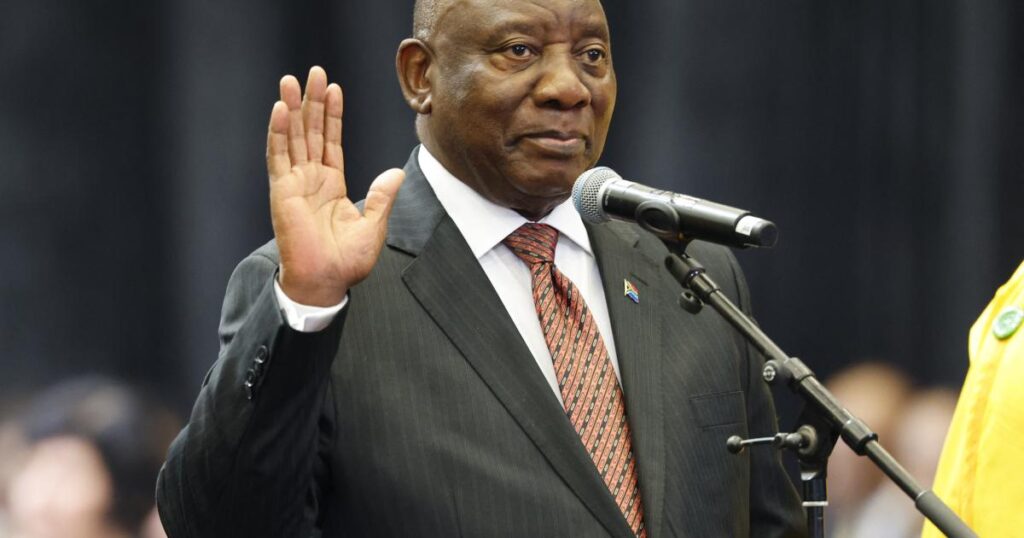South Africa’s Energy Crisis: The Biggest Challenge for the ANC’s New Coalition Government
As the African National Congress (ANC) enters uncharted waters by winning less than 50 percent of the vote for the first time in thirty years, the new coalition government faces critical challenges. Chief among them is ensuring reliable energy supplies, essential for reducing unemployment and revitalizing the country’s ailing manufacturing sector.
The Energy Conundrum
Energy resilience and reliability are crucial for South Africa’s revival. For over fifteen years, the country has experienced persistent blackouts—referred to locally as "load shedding"—that have made everyday life and business operations exceedingly difficult. Since 2007, power failures have escalated from 176,000 megawatts to nearly 20 million megawatts in 2023. A dedicated smartphone app now warns South Africans of impending load shedding, underscoring the problem’s ingrained nature in daily life.
Economic Impact
These energy woes have heavily damaged South Africa’s economy. Between 2012 and 2022, the nation’s GDP per capita fell by 17 percent, from $8,174 to $6,766. Manufacturing output also saw a 9 percent decline during the same period, while the official unemployment rate stands at a staggering 32.1 percent.
Importance of Reliable Energy
The new coalition government’s primary task is to resurrect what was once Africa’s economic powerhouse, with a focus on agriculture, mining, and manufacturing. The cornerstone for this recovery is the availability of dependable, resilient, and affordable energy. South Africa’s energy infrastructure primarily runs on coal, and making the most of domestic coal and natural gas resources from the Karoo region, supplemented by imports from Mozambique, is crucial. While renewable energy sources like wind and solar have seen increased adoption, they account for a mere 6 percent of electricity generation and cannot solely address the country’s energy needs due to their intermittent nature.
Financial Constraints and Infrastructure Challenges
South Africa’s energy utility, Eskom, is financially constrained, making it challenging to extend and rehabilitate the national grid to accommodate renewable energy. The grid struggles to integrate intermittent renewable power, and backup solutions like natural gas plants or batteries drive up costs significantly. Eskom’s 2020 Renewable Energy Utility Solution, which aims to allow customers to source up to 100 percent of their electricity from renewable sources, has been hampered by these limitations.
Policy Review
The government’s current National Development Plan 2030, which aims to phase out inexpensive domestic coal in favor of renewables, is fraught with high implementation costs. Although the plan promotes equitable, inexpensive, and clean energy, the cost implications of integrating these technologies into the grid remain steep.
International Support and Challenges
The United States has provided $1 billion for South Africa’s Just Energy Transition Project to bolster renewable energy efforts. Additionally, the World Bank loaned $440 million of a $500 million loan to decommission the Komati coal plant and replace it with wind and solar power. However, despite international support, the shift to renewables is more costly compared to coal, which South Africa has in abundance.
The Energy Trilemma
The World Energy Council’s Energy Trilemma aims to balance energy security, energy equity, and environmental sustainability. However, an excessive focus on environmental sustainability can undermine energy security for fossil fuel-rich countries like South Africa. Higher costs associated with renewable energy can also reduce energy equity, exacerbating socioeconomic disparities.
Future Outlook
Reliable energy availability is vital for South Africa’s economic recovery. Stabilizing the energy sector could reignite GDP growth and manufacturing, potentially leading to a decrease in greenhouse gas emissions in the long run. Though climate change is a stark reality, prioritizing reliable and affordable energy is crucial for economic health. Adapting to temperature changes is less costly than dismantling the existing fossil fuel infrastructure, which could severely impact the economy.
Moving Forward
The recent election results indicate widespread political dissatisfaction, driven largely by the government’s failing energy policies. These policies have hindered economic growth and increased unemployment. To reverse this trend, the new coalition must promptly secure a robust fossil fuel-based energy supply to support economic development.
This piece originally appeared in The National Interest.
